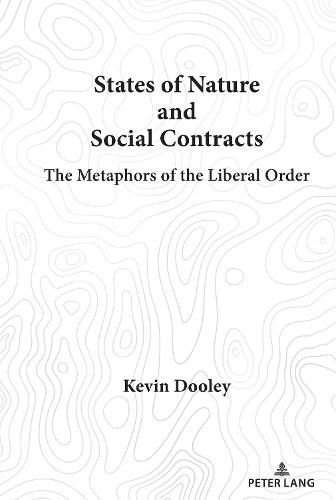Readings Newsletter
Become a Readings Member to make your shopping experience even easier.
Sign in or sign up for free!
You’re not far away from qualifying for FREE standard shipping within Australia
You’ve qualified for FREE standard shipping within Australia
The cart is loading…






This title is printed to order. This book may have been self-published. If so, we cannot guarantee the quality of the content. In the main most books will have gone through the editing process however some may not. We therefore suggest that you be aware of this before ordering this book. If in doubt check either the author or publisher’s details as we are unable to accept any returns unless they are faulty. Please contact us if you have any questions.
This book examines the most significant metaphors of modern political philosophy: the state of nature and the social contract. Each of the main chapters is dedicated to the political theory of the different social contract thinkers and the ways they articulated the uniquely liberal view of equality and freedom. The last chapter, unique to most books that explore the social contract, highlights the recent challenges to these views. It is this balance between accepted contractarian ideas and their critiques that makes this book a unique contribution to the field of political philosophy.
$9.00 standard shipping within Australia
FREE standard shipping within Australia for orders over $100.00
Express & International shipping calculated at checkout
This title is printed to order. This book may have been self-published. If so, we cannot guarantee the quality of the content. In the main most books will have gone through the editing process however some may not. We therefore suggest that you be aware of this before ordering this book. If in doubt check either the author or publisher’s details as we are unable to accept any returns unless they are faulty. Please contact us if you have any questions.
This book examines the most significant metaphors of modern political philosophy: the state of nature and the social contract. Each of the main chapters is dedicated to the political theory of the different social contract thinkers and the ways they articulated the uniquely liberal view of equality and freedom. The last chapter, unique to most books that explore the social contract, highlights the recent challenges to these views. It is this balance between accepted contractarian ideas and their critiques that makes this book a unique contribution to the field of political philosophy.